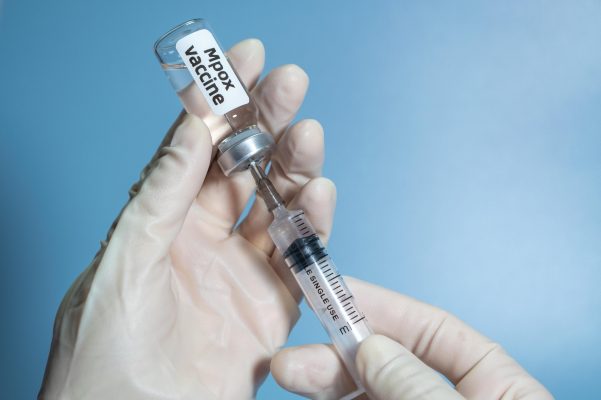Mpox vaccines have arrived in Nigeria and are currently undergoing rigorous testing to ensure their safety and effectiveness, Mojisola Adeyeye, director-general of the Nigeria Centre for Disease Control (NCDC) has said.
While the specific type and quantity of vaccines received remain undisclosed, she assured that they will soon be dispatched for use.
“The vaccine is available now. We are ensuring it is of quality and available for use,” Adeyeye said speaking on the sideline of an event in Lagos.
The National Primary Healthcare Development Agency had earlier disclosed that it was expecting about 10,000 doses of mpox vaccines before the end of August amid the scarcity of vaccines across Africa.
Rufai Gabar acting director of the National Primary Health Development Agency confirmed that some doses of mpox vaccines are currently with NAFDAC for testing during an interview on Wednesday.
The vaccines are expected to fortify the ongoing efforts to mitigate the transmission of mpox within Nigeria, the continent’s most populous country.
Africa currently grapples with a vaccine deficit of 9.8 million doses, with only 200,000 available to a population over 1.2 billion, Jean Kaseya, head of the Africa Centre for Disease Control and Prevention (Africa CDC) said in a statement.
Two vaccines recommended by the World Health Organization are in use against the disease: Jynneos and Acam2000. Both of them reduce the risk and severity of mpox infection.
Mpox, formerly monkeypox, is an infectious disease that originates from animals and spreads from human to human, Patrick Ramadan, team lead, of Acute Events Management, WHO African Region said during a virtual interview.
He noted that the disease is characterised by three major symptoms: fever, swelling of lymphoids, and lesions.
The zoonotic disease which has resulted in 2,863 confirmed cases and 517 deaths across 13 African countries in 2024, has affected a wide range of people, regardless of age, he added.
Nigeria has recorded 39 confirmed cases without any deaths across 19 states since the beginning of 2024, according to the Nigeria Centre for Disease Control (NCDC).






